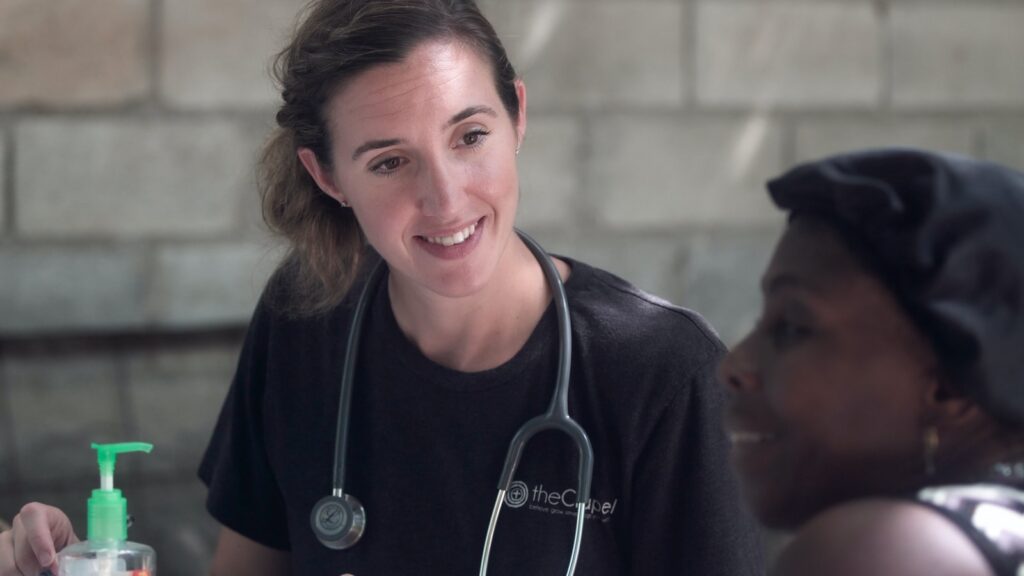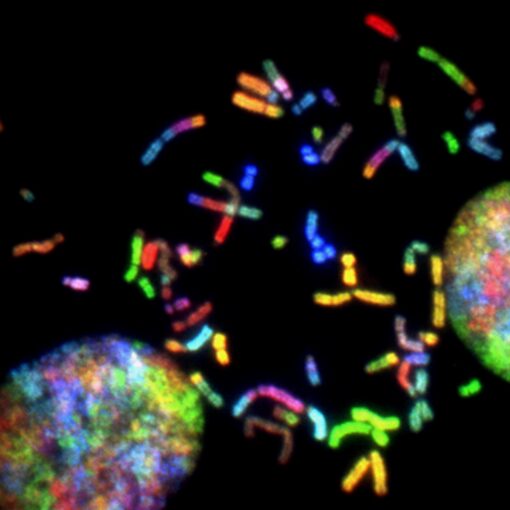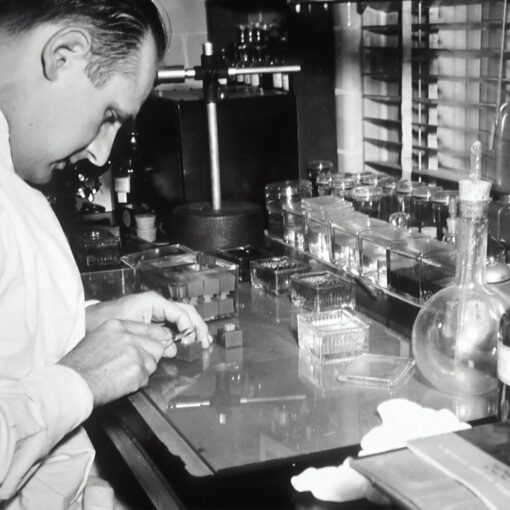Page Menu
Chlamydia is a sexually transmitted disease (STD) that can result in bacterial infection of the reproductive organs. Symptoms include abnormal discharge, burning sensation during urination, pain in the pelvic area, and vaginal bleeding between periods. If left untreated, chlamydia can lead to infertility or even death. Luckily, there are easy treatments for this disease available. Chlamydia infections typically respond well to antibiotic treatment with oral medication tablets or just single doses of antibiotics for mild cases.
Key Concepts and Top Takeaways
– Get tested regularly for STDs, especially if sexually active.
– Know the symptoms of chlamydia: abnormal discharge, burning during urination.
– Seek medical attention immediately if you experience any symptoms.
– Inform sexual partners if diagnosed to prevent further spread.
– Complete the full course of prescribed antibiotics as directed.
– Avoid sexual activity until treatment is complete and cleared by a doctor.
– Use condoms consistently to reduce the risk of infection.
– Limit the number of sexual partners to lower exposure risk.
– Educate yourself about other STDs and their prevention methods.
– Follow up with your healthcare provider for retesting after treatment.
Please Note: This post may contain affiliate links. If you click one of them, we may receive a commission at no extra cost to you. As an Amazon Associate, I earn from qualifying purchases.

The Centers for Disease Control and Prevention (CDC) estimates that 2.9 million cases of chlamydia infections occur in the United States every year. The CDC also estimates that 1 out of 4 people with chlamydia don't even know they have it. Chlamydia is one of the most common sexually transmitted diseases (STDs) in the United States and can lead to serious health problems, such as infertility or ectopic pregnancy, if left untreated.
Staying safe during sex is important for those who want to prevent or reduce the risk of sexually transmitted diseases. Chlamydia is a common and curable STD, and many people don’t know they have it. Symptoms include burning and pain urinating, abnormal discharge, and bleeding after intercourse. Treatments include antibiotics and may take up to a week before the infection clears up. With testing and treatment options available, chlamydia can be managed without any lasting complications.
Symptoms of Chlamydia
According to the CDC, chlamydia is a sexually transmitted disease that can affect both men and women. Chlamydia can be contracted from vaginal, anal or oral sex, or from close contact with the anus or mouth of an infected individual. Most often, people will experience no symptoms of infection.
Many people who have it don't even know they have it. If the infection goes unnoticed or untreated, chlamydia can lead to pelvic inflammatory disease in females and infertility in both sexes. To reduce your risk of contracting this infection, use condoms when you're having sex with someone you don't know well, get tested for STDs regularly, and always remember that if something feels wrong, it probably is.
Most people do not have symptoms or confuse them with an infection caused by a virus. Some symptoms include burning sensation when urinating, pain during intercourse, vaginal discharge, increased vaginal secretions, unusual odor from the genital area, and pain in lower abdomen.
It is uncomfortable to know that there is something wrong with your body. It is even more discomforting when the symptoms are burning in your vagina and lower abdomen. This can be a symptom of a sexually transmitted infection, Chlamydia. Chlamydia, the most commonly reported STD in the U.S., has been known to cause many symptoms among its victims, including burning during urination and discharge from the vagina or penis.
Just because you have burning sensations when urinating doesn't mean you have an STD. Burning sensation can be caused by a urinary tract infection, prostate inflammation, or many other innocuous things. What's important is that you get tested for Chlamydia, an STI that can go unnoticed for months or years if left untreated.
Many people who contract Chlamydia may not know it because they will not experience any symptoms. These people are referred to as carriers. However, when these people eventually do experience symptoms, they may feel pain when having sex in the vaginal area or anus. The main cause of this is the inflammation of the tissue in this area, which can lead to swelling and irritation in both men and women.
Vaginal discharge from Chlamydia is an STD that causes a woman to feel a burning sensation when urinating and itching in the genital area. The discharge could be a clear or whitish fluid that has an unpleasant odor, or it could have no color at all. Women should not have vaginal discharge if they’re not sexually active. Sex can lead to infection from an STD such as Chlamydia, so women who are sexually active should get tested regularly.
The two major causes of vaginal discharge, bacterial vaginosis and chlamydia, can both be easily treated with antibiotics. Chlamydia is a sexually transmitted infection that can often cause no symptoms at all, but it can cause discharge and genital ulcers in some cases. Bacterial vaginosis is caused by an imbalance of bacteria in the vagina that can lead to discharge and an unpleasant odor.
It can cause progressive damage to the reproductive organs, which can result in infertility. One of the most common symptoms of Chlamydia is pain in the lower abdomen. There are many treatments for this form of STD, including antibiotics and antivirals.
Treatment Options for Chlamydia
 Chlamydia is a sexually transmitted disease that can be easily treated with antibiotics, but if not treated it can lead to chronic pain, infertility, and increased risk of other STDs. Untreated chlamydia can lead to serious complications. The best way to treat the condition is through a round of antibiotics. Women who are pregnant or considering becoming pregnant should discuss treatment options with their doctor. Other treatments for chlamydia include abstinence from sexual intercourse and condom use.
Chlamydia is a sexually transmitted disease that can be easily treated with antibiotics, but if not treated it can lead to chronic pain, infertility, and increased risk of other STDs. Untreated chlamydia can lead to serious complications. The best way to treat the condition is through a round of antibiotics. Women who are pregnant or considering becoming pregnant should discuss treatment options with their doctor. Other treatments for chlamydia include abstinence from sexual intercourse and condom use.
If you are sexually active, it is possible you have been exposed to chlamydia. The CDC estimates that 1 out of every 4 men and women have the infection at any given time. Treatment for chlamydia is antibiotics, and if left untreated can cause complications such as pelvic inflammatory disease, ectopic pregnancy, and infertility. The CDC recommends the following medications: azithromycin, doxycycline, or erythromycin.
Treatment for chlamydia consists of antibiotics and can either be taken by mouth or inserted into the rectum. These treatments must be taken for at least 7 days to ensure full recovery, but it's important to note they won't protect you from getting chlamydia again.
The infection can be passed from person to person when someone that has the infection have unprotected sex with a partner without a condom or when an infected man ejaculates inside a woman's vagina. Treatment for Chlamydia is available in the form of antibiotics and will cure the infection in about two weeks. It is important to see a doctor as soon as possible.
Prevention of Chlamydia
 Chlamydia is a common sexually transmitted infection that can have long-lasting social and affect one’s quality of life. Luckily, there are ways to prevent contracting these bacteria which include the following: abstaining from sex, limiting sexual partners, using a condom during sex, and getting tested regularly.
Chlamydia is a common sexually transmitted infection that can have long-lasting social and affect one’s quality of life. Luckily, there are ways to prevent contracting these bacteria which include the following: abstaining from sex, limiting sexual partners, using a condom during sex, and getting tested regularly.
Studies have shown that abstinence is one of the best ways to avoid contracting Chlamydia. One study found that women who abstain from sex are significantly less susceptible to getting Chlamydia. The Centers for Disease Control recommend abstinence as a way to protect oneself from getting diseases, including Chlamydia. For people who can't or choose not to abstain from sex, they should use protection every time they engage in sexual activity.
Regularly getting tested is a great way to avoid the serious and unpleasant consequences of contracting chlamydia. If left untreated, chlamydia can lead to infertility and pain. The majority of people with chlamydia do not know they have it because there are no symptoms for men or women to show. Unprotected sex is an easy way to contract this infection, so avoiding sex outside monogamous relationships is essential in order to prevent it.
Monogamous relationships are the only way to prevent getting Chlamydia. However, it is essential that monogamous couples use protection even when they are both monogamous because it is not only the man who can get the disease.
This is a problem because many people are unaware of how to protect themselves for this and take time before asking their partner, which could be too late.
Sexually transmitted diseases are a very real concern for young people who are sexually active. It is imperative that they are aware of the risks that come with unprotected sex, including getting Chlamydia. Many people are unaware that there are many types of STDs, and it is good to be educated about the symptoms and treatments in order to avoid getting it in the first place or to better deal with symptoms if one does contract it.
Chlamydia Can Lead to Serious Health Problems
Chlamydia is caused by bacteria infecting the cervix, uterus, fallopian tubes, and/or urethra. One of these health complications includes pelvic inflammatory disease, which can cause infertility in women. Chlamydia affects both males and females, but it is more common among young people, including teenagers aged 15-24 years old.
For women, untreated Chlamydia can lead to pelvic inflammatory disease (PID) which can result in long-term pain. PID also puts them at risk for chronic pelvic pain and infertility. Chlamydia is a sexually transmitted disease that can lead to pelvic inflammatory disease. It can cause pain during urination, sex, or bowel movements. The main symptom of chlamydia is an abnormal vaginal discharge, typically yellow in color. If not treated with antibiotics, chlamydia can spread to the uterus and fallopian tubes, which is called pelvic inflammatory disease. This infection can cause long-term health problems, including fertility problems in females.
Even if treated, there are still risks for infertility. It's important to know that chlamydia can't be cured by antibiotics alone. In order to prevent future problems with fertility, it is important to practice safe sex and avoid unprotected vaginal intercourse.
To put it plainly, Chlamydia is an STD that can cause infertility in women if left untreated. However, many people are not aware of the connection between the two. Chlamydia is a bacterial infection that often goes unnoticed because it does not cause pain or other symptoms. The only way to know if you have chlamydia is to get tested!
An untreated infection will usually last six months or longer and can cause a person to experience infertility. Men who have an untreated chlamydia infection could develop a serious condition called epididymitis, which may require surgery to fix.
Common Questions About Chlamydia
Many people are not aware that chlamydia is the most common sexually transmitted infection in the United States. More than two million cases of Chlamydia are reported each year, with an estimated 75% of infected individuals unaware they have it. It is important to understand the indicators of this disease and how it differs from other STIs like gonorrhea, herpes, or HIV. People who have Chlamydia may want to ask a few questions. The best source for answers is through your own doctor. That being said, here are some of the more frequent questions that are brought up in regard to Chlamydia:
What is the best way to tell whether I have chlamydia?
Many people think that there is no way to know if they have chlamydia. Chlamydia can cause a range of symptoms, but many people don't experience any symptoms at all. There are a number of ways to find out if you have chlamydia, including a urine test, lab test, or getting screened with the PCR Rapid Test for Chlamydia. The most accurate way to know for sure is by getting tested for chlamydia with the PCR Rapid Test.
Symptoms are usually mild, but in some cases, it can lead to serious complications. If you are experiencing any of these symptoms, please visit your doctor to get tested: genital pain, discharge from the vagina or penis, vaginal bleeding after sex, burning when urinating. Chlamydia can be treated with antibiotics if caught early. However, untreated infections can lead to pelvic inflammatory disease and infertility in women.
How long does it take for chlamydia to show up on a test?
With the rapid increase of new STDs, it has become more important to take precautionary measures. A common STI that spreads around the world is chlamydia. In this article, we will be exploring what causes this infection and why you need to get tested after any sexual encounter with a sexual partner.
It can take up to two weeks for chlamydia to show up on a test. Chlamydia is the most common bacterial sexually transmitted infection, affecting an estimated 1.1 million people in the U.S. Each year, about 2% of those with this condition experience symptoms during the first few weeks after infection, but many do not have symptoms for years afterward.
What can I do to lower my chances of contracting chlamydia?
Chlamydia is one of the most common sexually transmitted bacterial diseases in America, with 1.4 million new cases per year. Thankfully, there are some steps you can take to lower your risk of contracting chlamydia or any other sexually transmitted infection.
It is transmitted through unprotected vaginal, anal, or oral sex. If you abstain from sex, use protection with all sexual partners, and/or only have the one sexual partner who has been tested for chlamydia in the past six months, contact your health care provider to get screened if you’re concerned about having an infection.
Is it possible to treat chlamydia?
This time of year, many people are thinking about sexual health and how to maintain good habits. People should know that chlamydia can be treated with antibiotics, but cannot be cured. The first step in diagnosing chlamydia is a urine test. A person may have chlamydia for up to three months before they show any symptoms or feel any discomfort.
Is it possible to treat chlamydia? Chlamydia is a relatively common sexually transmitted disease among young adults. It is curable but can have long-lasting effects if left untreated. The best way to avoid contracting the STD is by practicing safe sex. This includes using condoms and being selective about your partners.
How can chlamydia affect my fertility?
A chlamydia infection can affect your fertility because it can cause inflammation of the fallopian tubes, which increases your risk of an ectopic pregnancy or pelvic inflammatory disease. If you want to have a baby, tell your doctor about any symptoms that may suggest that you have chlamydia.
Chlamydia is a sexually transmitted disease that can affect your fertility if left untreated. These bacteria can cause inflammation of the female reproductive organs, which leads to the production of more mucus that will then obstruct the fallopian tubes and prevent sperm from reaching an egg. If you are concerned about infertility due to chlamydia, it is important to get tested for this bacterial infection.
I'm expecting a child. What is the impact of chlamydia on my baby?
One in four women suffers from chlamydia by the time they reach 25 years old. The infection can be spread to both men and women sexually, but it is more common in females. Chlamydia may cause swelling of the cervix, which can affect the mother's ability to carry a baby. If left untreated, chlamydia may cause birth defects like blindness or deafness in the baby.
Scientists have identified a link between chlamydia and miscarriage. It has been found that pregnant women with chlamydia can have a 5x greater risk of miscarrying. Furthermore, it is believed that the risk of miscarriage increases to 15-20x when the mother has both chlamydia and gonorrhea. The risks are even higher when other sexually transmitted diseases are included in the equation.
What is the mode of transmission of chlamydia?
Chlamydia is a common sexually transmitted disease caused by the bacterium Chlamydia trachomatis. In the United States, it is estimated that there are about 2.8 million chlamydia infections annually. Chlamydia is transmitted by contact with infected genital fluids. The bacterium can be found in vaginal fluids, cervix fluids, and semen.
It's important to understand how we get chlamydia and how to prevent getting it. Chlamydia can be passed through vaginal, anal, or oral sex. When someone has unprotected oral, vaginal, or anal sex with someone who has chlamydia in their throat, genital area, or rectum, they may contract the infection.
In conclusion, it is important to get tested for STDs on a regular basis. If you are unsure of which STD test to order, ask your doctor. However, if you believe that you may have STD symptoms, please seek professional medical care right away. This way, the correct diagnosis and treatment can be given as soon as possible so that it may be prevented from progressing.

Kevin Collier is a seasoned health writer at Otchut.com, specializing in over-the-counter medicines, common medical ailments, and general health topics. With a background in healthcare and a passion for making medical information accessible, Kevin aims to empower readers with knowledge to make informed health decisions. When he's not writing, he enjoys researching the latest in health trends and advocating for wellness in his community.





